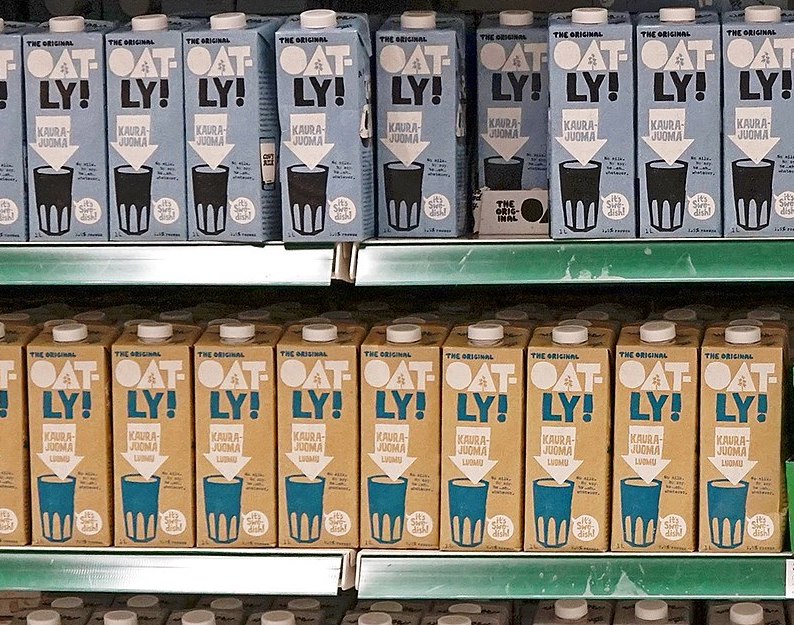A third of young Britons have made a switch to plant-based milk alternatives, according to new research from Mintel.
Driving the plant-based revolution, some 26% of women now use plant-based milk alternatives and as many as a third (33%) of 16-24s opt for these varieties.
Growth of milk alternatives is largely fuelled by more recent category entrants such as oat (volume sales of which grew 71% between 2017-18), coconut (up 16% between 2017-18) and almond variants (up 10% between 2017-18), all of which have grown in visibility as well as availability in 2018.
But while plant-based milk alternatives continue to grow in popularity, according to Mintel research, they accounted for just 4% of volume sales and 8% of value sales of white milk in 2018. Furthermore, their use in cooking and hot drinks remains limited. Only 25% of plant-based milk alternatives consumers use these products in cooking, compared to 42% for standard cow’s milk users. The difference is even wider with hot drinks, where just 42% of plant-based milk alternatives consumers use them in hot drinks, compared to 82% for standard cow’s milk users. Nevertheless, a fifth (21%) of Brits believe nut milks add more flavour to drinks than cow’s milk.
Highlighting that there are more opportunities for further growth in the plant-based milk alternatives trend, 65% of plant-based milk users say they would welcome advice on how to use plant-based milk/cream alternatives in cooking/baking – with 24% of non-users also interested in such advice.
The shift towards the higher-priced plant-based alternatives will carry on, helping to add value to the market overall
Emma Clifford, associate director of UK Food and Drink, said: “Plant-based milk alternatives continue to make further inroads into the mainstream, with high levels of innovation activity such as the entrance of Innocent Drinks to the market in 2018. Growth in this segment forms part of a much wider plant-based movement, driven by concerns around health, ethics and the environment, as well as by consumers’ love of variety in their diets.
“The shift towards the higher-priced plant-based alternatives will carry on, helping to add value to the market overall. Consumer interest in advice on how these alternatives suit different usage occasions signals marked potential to boost usage among current users and non-users alike.”
16-24s lose taste for standard cow’s milk
Traditionally a household staple, usage of standard cow’s milk is sliding among 16-24-year-olds, falling from 79% in 2018 to 73% in 2019. While cow’s milk still accounted for the vast majority of white milk sales in 2018 (96%), usage of this family favourite is increasingly skewed towards older consumers, peaking at 92% among over-45s.
The ethical milk drinker
Mintel’s research highlights the importance of ethics and the environment for the milk and dairy industry as a third (33%) of milk, milk drinks and cream users are interested in products in a bottle/pot made wholly/partly of recycled plastics. Meanwhile, a quarter (27%) of users are interested in products with a guarantee of sustainable farming. Around one in seven (15%) users would be interested in products with an on-pack statement of how many days the animals spent outside.
Image: (Volume) sales of oat milk rose between 2017-18.











